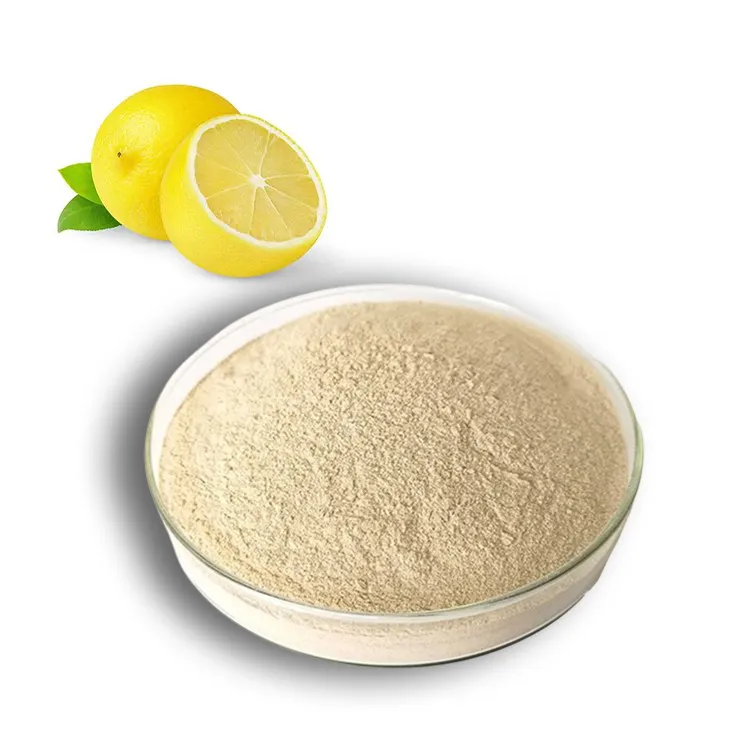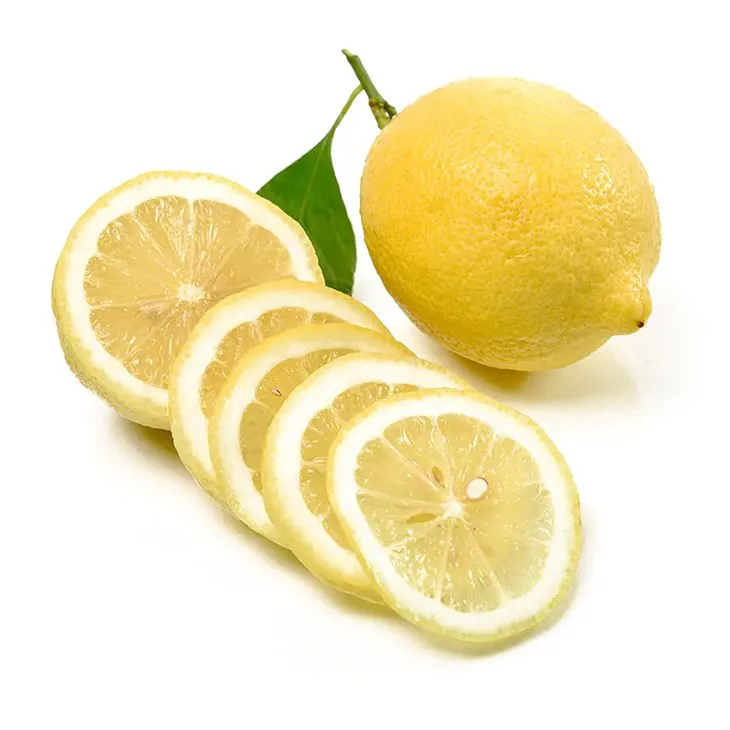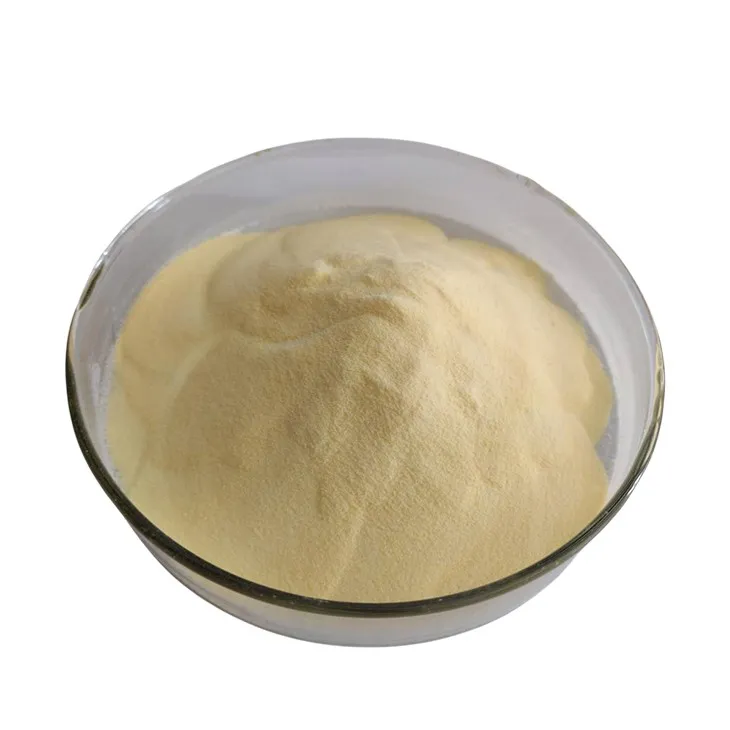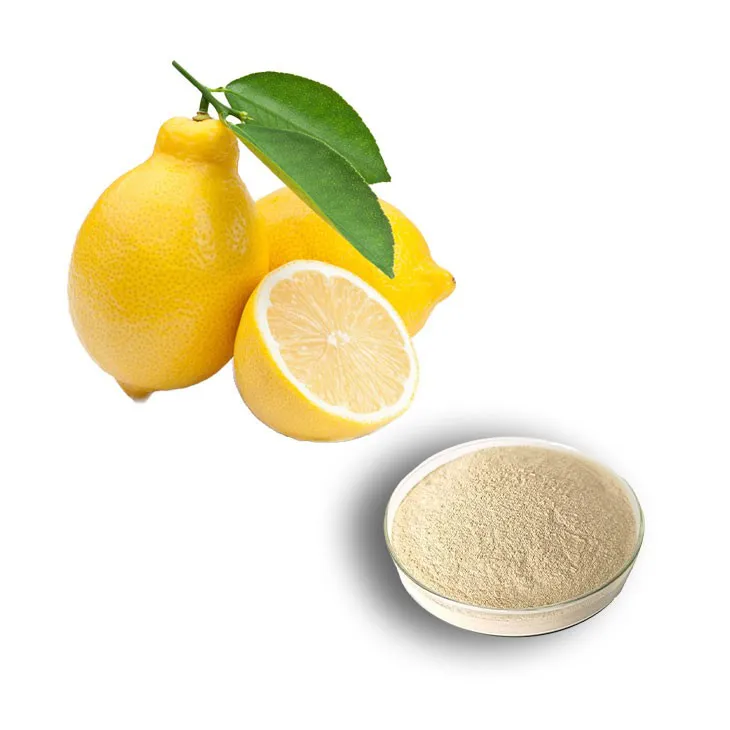- 0086-571-85302990
- sales@greenskybio.com
How to Extract Lemon Extract by Steam Distillation.
2024-11-29

1. Introduction
Lemon Extract is a highly valued substance in various industries, including the food, beverage, and cosmetic sectors. Steam distillation is one of the most effective methods for extracting the essential oils and other valuable components from lemons. This process not only helps in obtaining a pure and concentrated extract but also retains the unique properties of lemons. In this comprehensive guide, we will explore the ins and outs of steam distillation for Lemon Extract, including the process steps, factors affecting the extraction, and the characteristics of the resulting extract.

2. The Basics of Steam Distillation
Steam distillation is a separation technique that is based on the fact that when a mixture of two immiscible liquids (in this case, water and the lemon components) is heated, the total vapor pressure of the system is equal to the sum of the vapor pressures of the individual components. Since the vapor pressure of water is significant at the boiling point of water, it can carry the volatile components of the lemon along with it during vaporization.
2.1. Principle of Operation
When the water - lemon mixture is heated, water vaporizes first due to its lower boiling point compared to most of the lemon components. As the water vapor rises, it entrains the volatile compounds present in the lemon, such as essential oils. These vaporized components then pass through a condenser, where they are cooled and converted back into a liquid state. The resulting liquid contains both water and the extracted lemon components, which can then be further separated if necessary.

3. Equipment Needed for Steam Distillation of Lemon Extract
- Steam Generator: This is used to produce steam. It can be a simple kettle or a more sophisticated industrial - grade steam generator. The steam generator should be able to provide a consistent supply of steam at the appropriate temperature and pressure.
- Distillation Flask: The lemon material and water are placed in this flask. It should be made of heat - resistant glass or other suitable materials to withstand the heat during the distillation process.
- Condenser: The condenser is responsible for cooling the vaporized mixture back into a liquid state. There are different types of condensers, such as water - cooled condensers and air - cooled condensers. Water - cooled condensers are more commonly used for steam distillation as they provide more efficient cooling.
- Receiver Flask: This flask is used to collect the condensed liquid, which contains the lemon extract and water. It should be clean and sterile to prevent contamination of the extract.
- Thermometer: A thermometer is used to monitor the temperature during the distillation process. This helps in ensuring that the temperature is maintained within the appropriate range for optimal extraction.
- Heating Mantle or Bunsen Burner: These are used to heat the distillation flask. A heating mantle is preferred in some cases as it provides more even heating compared to a Bunsen burner.

4. Steps in Steam Distilling Lemon Extract
- Preparation of the Lemon Material:
- Start by washing the lemons thoroughly to remove any dirt, pesticides, or other contaminants. It is important to use fresh and high - quality lemons for the best results.
- Peel the lemons carefully. The peel contains a significant amount of the essential oils and other volatile compounds. You can either use the whole peel or grate it, depending on your preference.
- Optionally, you can also use the lemon pulp. However, keep in mind that the pulp may contain more water and non - volatile substances, which may affect the purity of the extract.
- Setup of the Distillation Apparatus:
- Place the prepared lemon material (peel and/or pulp) in the distillation flask. Add a sufficient amount of water to the flask. The ratio of lemon material to water can vary depending on the desired concentration of the extract, but a common ratio is about 1:2 (lemon material to water).
- Connect the distillation flask to the steam generator, condenser, and receiver flask as per the proper setup of the distillation apparatus. Make sure all the connections are tight to prevent any leakage of steam or vapor.
- Insert the thermometer into the distillation flask to monitor the temperature.
- Distillation Process:
- Turn on the steam generator or start heating the distillation flask using the heating mantle or Bunsen burner. As the temperature rises, water will start to vaporize, and the steam will carry the volatile components of the lemon along with it.
- Monitor the temperature carefully. The temperature should be maintained at around 100°C (the boiling point of water) for an efficient distillation process. If the temperature rises too much, it may cause the decomposition of some of the lemon components.
- The vaporized mixture will pass through the condenser, where it will be cooled and condensed back into a liquid. This liquid will collect in the receiver flask.
- Collection and Separation of the Extract:
- Continue the distillation process until a sufficient amount of extract has been collected in the receiver flask. The amount of time required for this will depend on various factors, such as the amount of lemon material used, the efficiency of the distillation apparatus, etc.
- Once the distillation is complete, the liquid in the receiver flask contains both water and the lemon extract. To separate the extract from the water, you can use techniques such as decantation or using a separating funnel if the two phases are clearly separable. In some cases, further drying or purification steps may be required to obtain a more concentrated and pure lemon extract.

5. Factors Affecting the Steam Distillation of Lemon Extract
- Temperature:
As mentioned earlier, maintaining the appropriate temperature is crucial for the success of the distillation process. If the temperature is too low, the vaporization of water and the extraction of lemon components may be incomplete. On the other hand, if the temperature is too high, it can lead to the degradation of some of the volatile compounds in the lemon, resulting in a lower - quality extract.
- Ratio of Lemon Material to Water:
The ratio of lemon material to water can significantly affect the concentration and yield of the extract. A higher proportion of lemon material may lead to a more concentrated extract, but it may also increase the viscosity of the mixture in the distillation flask, which can affect the efficiency of the distillation process. Conversely, a higher amount of water may dilute the extract but can also ensure better vaporization and extraction.
- Quality and Freshness of Lemons:
Using fresh and high - quality lemons is essential for obtaining a good - quality extract. Old or damaged lemons may have lower levels of essential oils and other valuable components. Additionally, lemons that have been treated with excessive pesticides or other chemicals may introduce unwanted contaminants into the extract.
- Distillation Time:
The length of the distillation process also affects the yield and quality of the extract. A longer distillation time may increase the amount of extract obtained, but it may also lead to the extraction of some non - volatile or less - desirable components. It is important to find the optimal distillation time based on the specific requirements of the extract.
6. Properties of the Lemon Extract Obtained by Steam Distillation
- Aroma:
The lemon extract obtained by steam distillation has a characteristic fresh and citrusy aroma. This aroma is due to the presence of essential oils, such as limonene, which is one of the major components in lemon essential oil. The aroma of the extract can be used in various applications, such as in perfumes, air fresheners, and food flavorings.
- Flavor:
It also has a distinct lemon flavor, which is a combination of sourness, sweetness, and the characteristic citrus note. This flavor makes it a popular ingredient in the food and beverage industries, where it is used to add a lemon - like taste to products such as cakes, cookies, juices, and cocktails.
- Chemical Composition:
The extract contains a variety of chemical compounds, including essential oils, terpenes, and flavonoids. These compounds have different properties and functions. For example, the essential oils have antimicrobial and antioxidant properties, while the flavonoids are known for their potential health benefits, such as anti - inflammatory and anti - cancer effects.
- Solubility:
Lemon extract obtained by steam distillation is soluble in certain solvents, such as alcohol and oil. This solubility property makes it suitable for use in different formulations. For example, in the cosmetic industry, it can be dissolved in oil - based products such as creams and lotions, while in the food industry, it can be dissolved in alcohol - based flavorings.
7. Applications of Lemon Extract Obtained by Steam Distillation
- Food and Beverage Industry:
The lemon extract is widely used in the food and beverage industry as a flavoring agent. It can be added to a variety of products, including baked goods, confectionery, dairy products, and beverages. It not only adds a pleasant lemon flavor but also provides some of the health benefits associated with lemon components, such as antioxidant and antimicrobial properties.
- Cosmetic and Skincare Industry:
In the cosmetic and skincare industry, lemon extract is used for its astringent, antibacterial, and antioxidant properties. It can be found in products such as face creams, lotions, toners, and body washes. The fresh aroma of the lemon extract also makes it a popular ingredient in perfumes and body sprays.
- Pharmaceutical Industry:
Some of the compounds present in lemon extract, such as flavonoids, have potential medicinal applications. The extract may be used in the development of new drugs or as a natural supplement. However, further research is needed to fully explore its pharmaceutical potential.
- Aromatherapy:
The fresh and invigorating aroma of lemon extract makes it a popular choice in aromatherapy. It can be used in diffusers to create a relaxing and refreshing atmosphere, or it can be added to massage oils to enhance the sensory experience.
8. Conclusion
Steam distillation is a reliable and effective method for extracting lemon extract. By understanding the principles, equipment, steps, factors affecting the process, and the properties of the resulting extract, it is possible to obtain a high - quality lemon extract for various applications. However, it is important to follow proper safety procedures during the distillation process, such as handling hot equipment and chemicals carefully. With the increasing demand for natural and high - quality ingredients in various industries, the steam distillation of lemon extract is likely to continue to play an important role in the future.
FAQ:
Q1: What equipment is needed for steam distillation of lemon extract?
For steam distillation of lemon extract, you will need a distillation apparatus. This typically includes a heat source such as a Bunsen burner or an electric heater, a distillation flask to hold the lemon material, a condenser to cool the vapor and convert it back to liquid, and a receiving flask to collect the extracted lemon extract. You may also need tubing to connect the different components, and a thermometer to monitor the temperature during the process.
Q2: How does temperature affect the steam distillation of lemon extract?
Temperature plays a crucial role in steam distillation of lemon extract. If the temperature is too low, the rate of vaporization will be slow, and the extraction process may take a long time or may not be complete. On the other hand, if the temperature is too high, it can cause degradation of some of the volatile compounds in the lemon, which may affect the quality of the extract. The ideal temperature range is usually set to ensure efficient vaporization of the essential oils and other volatile components in the lemon without causing any thermal damage.
Q3: What are the main volatile compounds in lemon extract obtained by steam distillation?
The main volatile compounds in lemon extract obtained by steam distillation include limonene, which gives the characteristic citrusy aroma. There are also other terpenes and terpenoids such as β - pinene, γ - terpinene, etc. These compounds are responsible for the unique smell and some of the potential beneficial properties of the lemon extract.
Q4: How long does the steam distillation process for lemon extract usually take?
The duration of the steam distillation process for lemon extract can vary depending on several factors. These include the amount of lemon material used, the efficiency of the distillation apparatus, and the desired concentration of the extract. Generally, it can take anywhere from a few hours to half a day. For a small - scale home - made extraction with a relatively simple setup, it may take longer compared to a large - scale industrial distillation process.
Q5: What are the quality control measures during steam distillation of lemon extract?
During steam distillation of lemon extract, quality control measures are important. Firstly, the quality of the lemons used should be monitored. They should be fresh and free from any mold or damage. Secondly, the temperature and pressure during distillation need to be carefully controlled within the appropriate ranges. Regular sampling of the extract during the process can also be done to check for the presence of the desired volatile compounds and to ensure that there is no contamination. Additionally, the cleanliness of the distillation equipment is crucial to prevent any unwanted substances from getting into the extract.
Related literature
- Steam Distillation of Citrus Oils: Optimization and Characterization"
- "The Chemistry and Applications of Lemon Extracts Obtained through Distillation Methods"
- "Steam Distillation in the Extraction of Volatile Compounds from Fruits: A Focus on Lemons"
- ▶ Hesperidin
- ▶ Citrus Bioflavonoids
- ▶ Plant Extract
- ▶ lycopene
- ▶ Diosmin
- ▶ Grape seed extract
- ▶ Sea buckthorn Juice Powder
- ▶ Fruit Juice Powder
- ▶ Hops Extract
- ▶ Artichoke Extract
- ▶ Mushroom extract
- ▶ Astaxanthin
- ▶ Green Tea Extract
- ▶ Curcumin
- ▶ Horse Chestnut Extract
- ▶ Other Product
- ▶ Boswellia Serrata Extract
- ▶ Resveratrol
- ▶ Marigold Extract
- ▶ Grape Leaf Extract
- ▶ New Product
- ▶ Aminolevulinic acid
- ▶ Cranberry Extract
- ▶ Red Yeast Rice
- ▶ Red Wine Extract
-
Green coffee bean Extract
2024-11-29
-
Baicalin
2024-11-29
-
Coix Seed Extract
2024-11-29
-
Purple Sweet Potato Extract
2024-11-29
-
Lavender Extract
2024-11-29
-
Mango flavored powder
2024-11-29
-
Garcinia Cambogia Extract
2024-11-29
-
Wheat Germ Extract
2024-11-29
-
Lemon Extract
2024-11-29
-
Elderberry Extract
2024-11-29




















